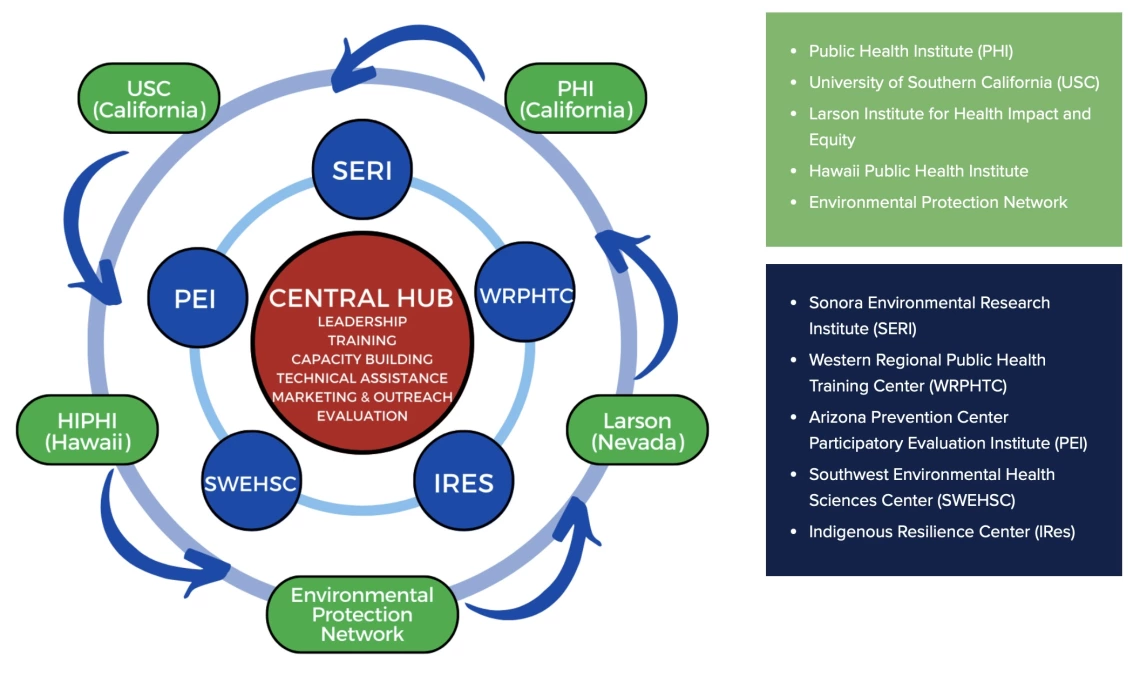WEST EJ Center Kicks Off by Presenting Services to Increase Environmental Justice for Historically Marginalized Communities

In June of 2023, the Environmental Protection Agency (EPA) awarded $10 million to the University of Arizona to fund the Western Environmental Science Technical Assistance Center for Environmental Justice, or WEST EJ Center, for five years. This funding will help advance environmental justice, which is under the new Executive Order (EO) 14096 Revitalizing Our Nation’s Commitment to Environmental Justice for All (2023) defined as the fair treatment and meaningful involvement of all people regardless of race, color, national origin, or income with respect to the development, implementation and enforcement of environmental laws, regulations and policies. The EPA’s promise of clean air, land and water has not reached many historically marginalized communities due to a complex interaction of physical, social and economic factors, and the WEST EJ Center brings together a diverse coalition with longstanding relationships and extensive expertise working with communities to overcome these barriers.
The Center offers free grants navigation, fosters community leadership with community resource fairs, student internships and community champions, provides advocacy trainings and resources, and offers technical expertise and assistance with research study design and statistics and mapping environmental and energy justice data.
For example, at the virtual kickoff event, the Center’s facilitators asked the participants what knowledge, skills or capacity do communities need to address environmental justice in their communities. Some tribal members shared the need to replace old software and obsolete measuring devices. When the Center introduced the summer student internship program, Melodie Lopez, who works with Indigenous youth in Arizona via the EcoTruths for Indigenous Youth program that focuses on developing their environmental leadership capacities, emphasized that host organizations for youth interns need to understand how to work with Indigenous youth: “Indigenous youth often bring a lot of Traditional Environmental Knowledge (TEK) to the table that might not be well received or respected.” Ms. Lopez wanted to see that internship sites can receive and work with Indigenous youth, which was acknowledged to be a valuable insight for the Center.
For the full story, please visit UArizona NAAIR.
